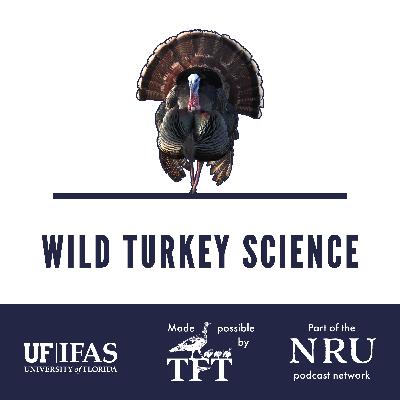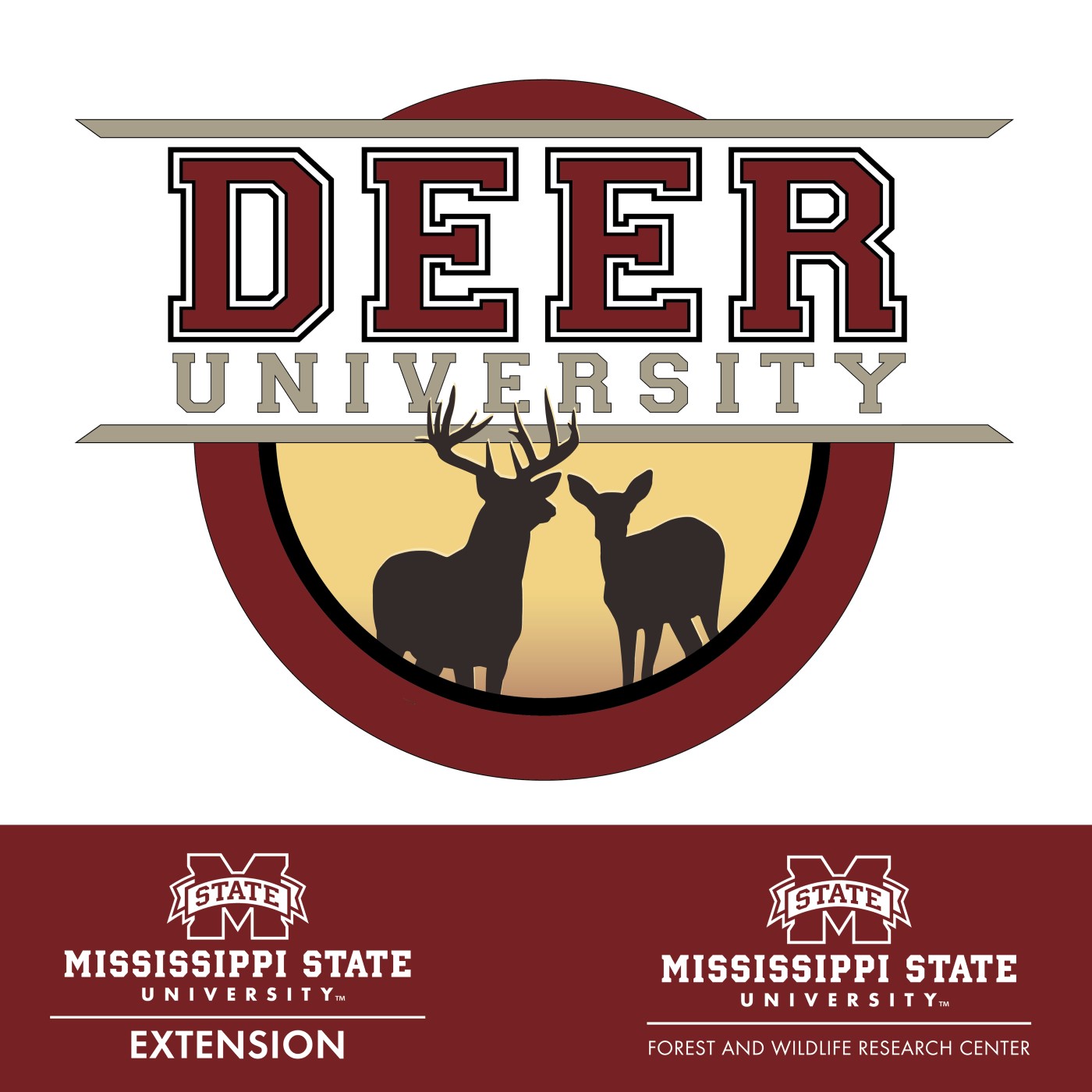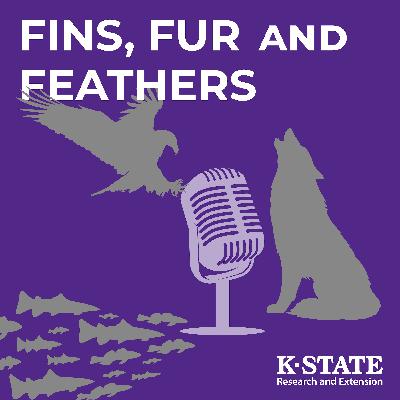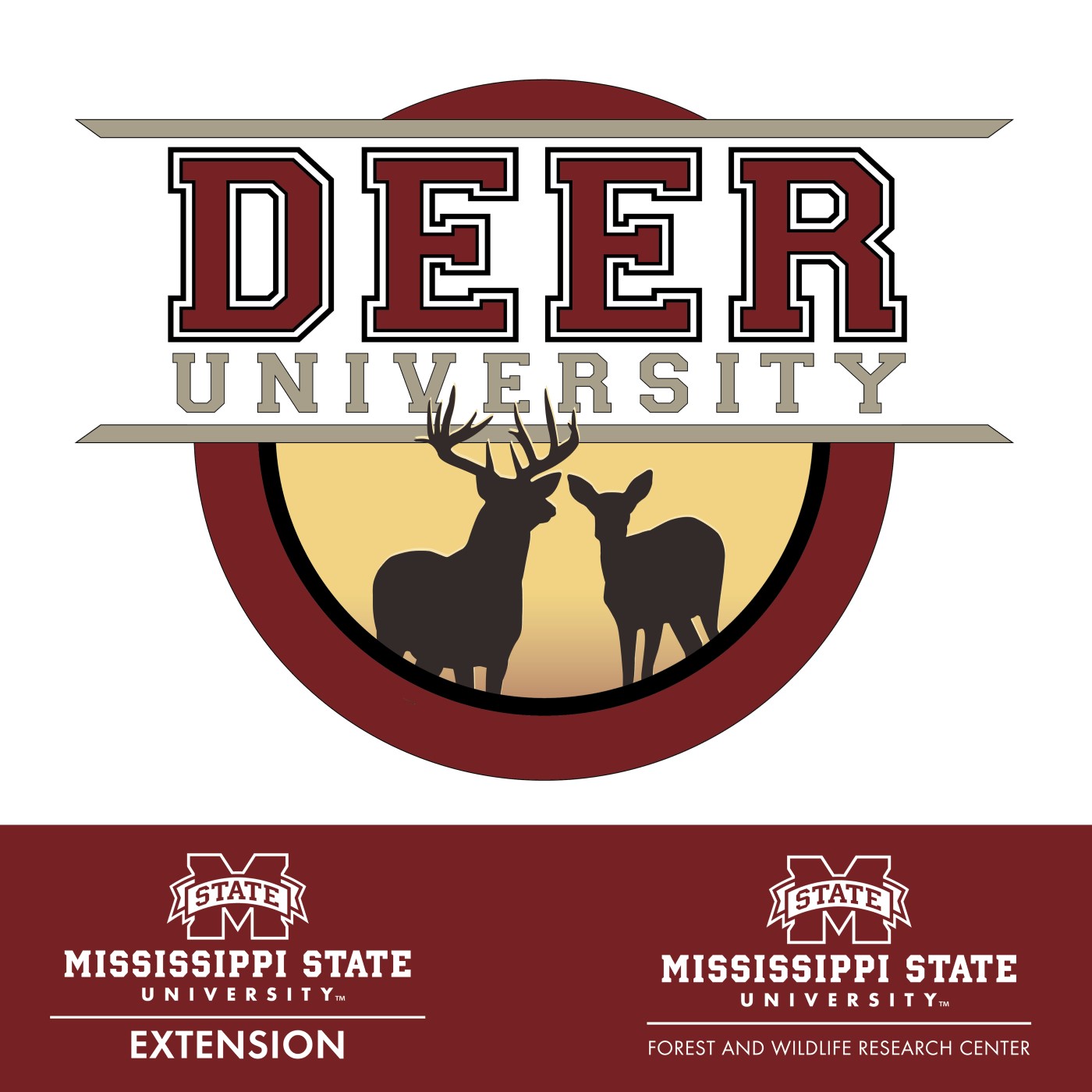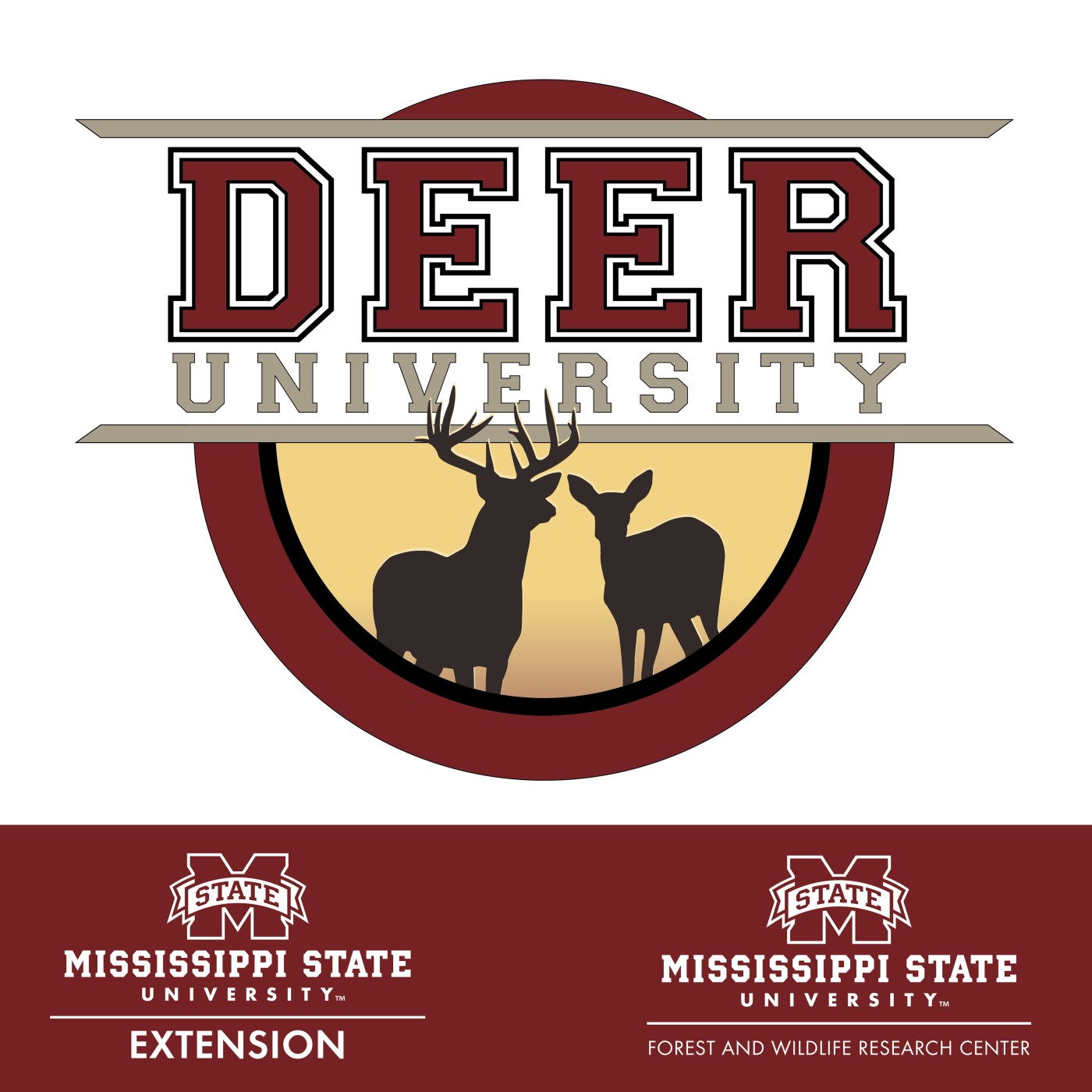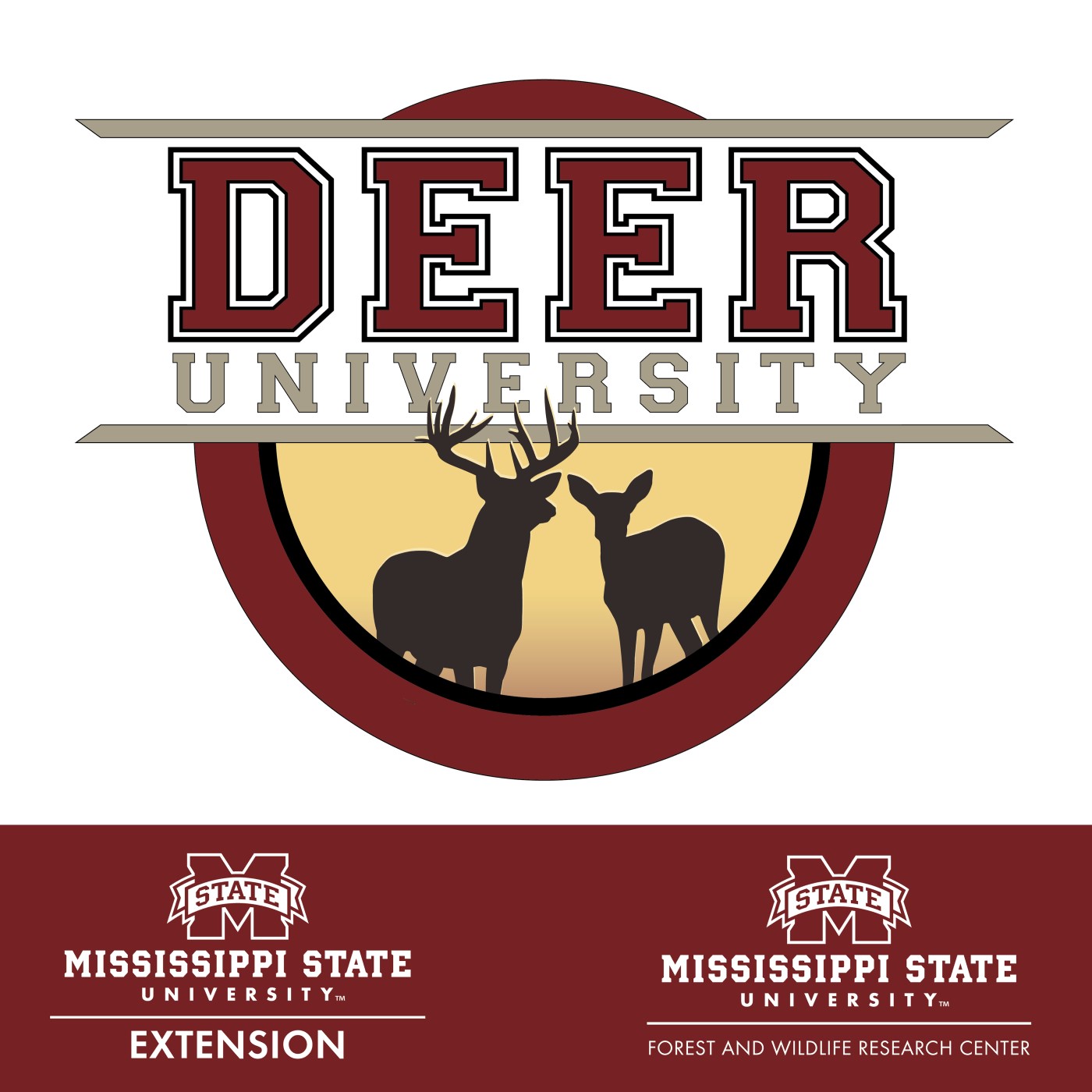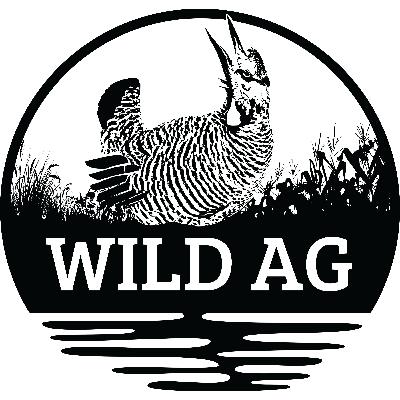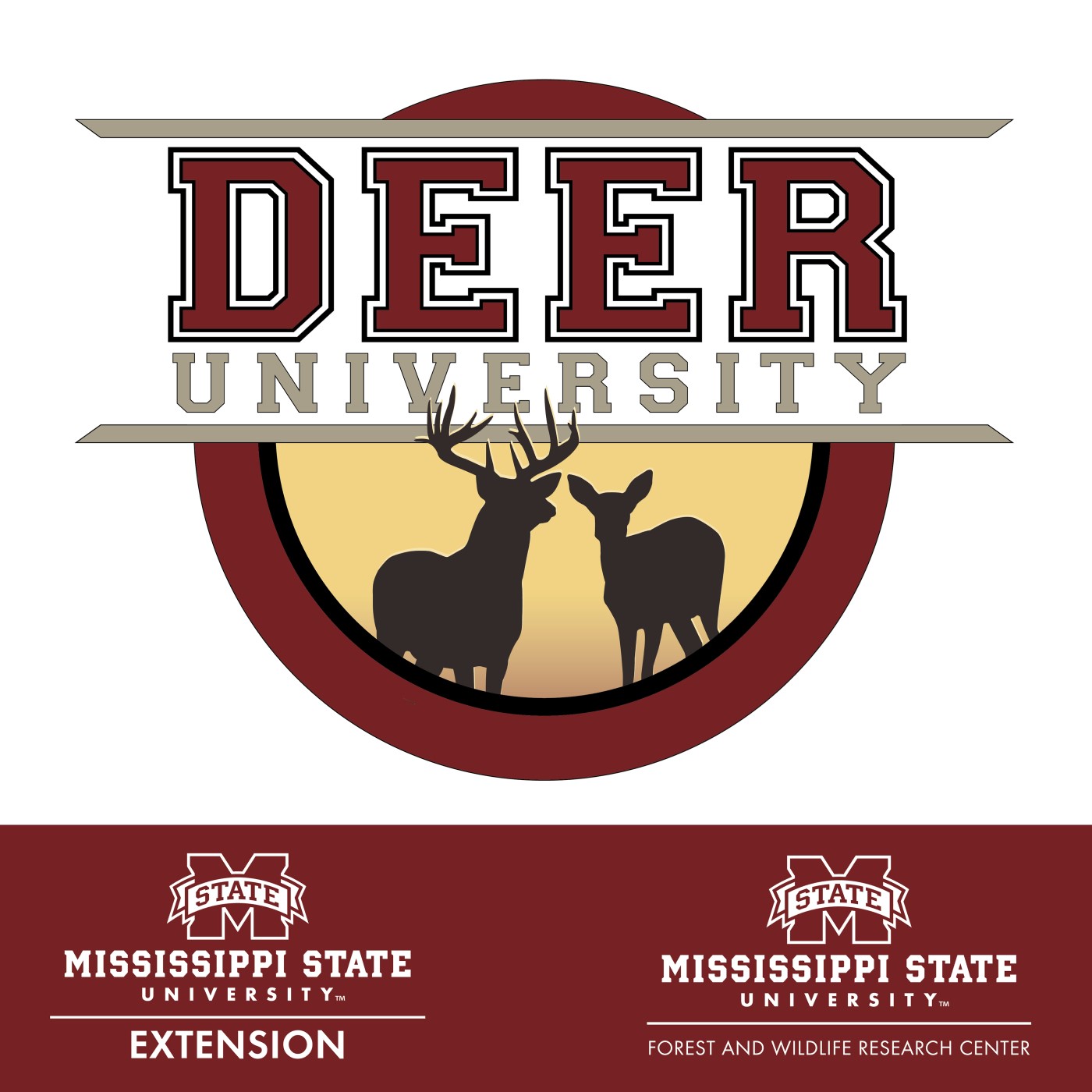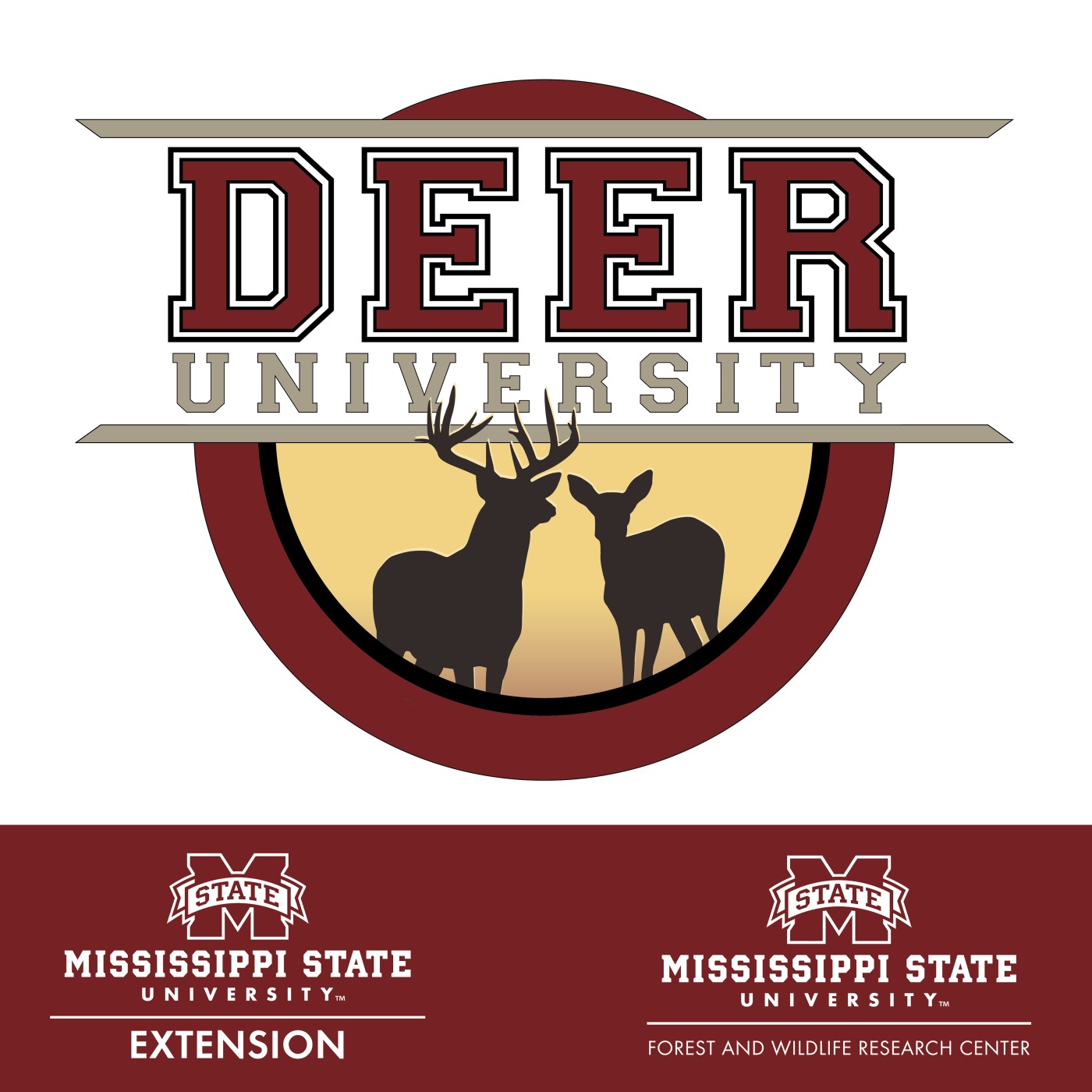Discover Natural Resources University
Natural Resources University

Natural Resources University
Author: Collaboration of land-grant universities
Subscribed: 90Played: 4,881Subscribe
Share
Description
Natural Resources University is a podcast network focused on delivering science-based natural resource management. The series housed within this network aim to deliver expert-based knowledge for their corresponding genre of natural resource management.
494 Episodes
Reverse
In this episode, we walk you through the steps on managing your fallow fields for turkey and deer. We cover the plants we're after and those we want to manage against, as well as herbicide preparation, broadcast application, timing of management, and more. Resources: iNaturalist Seek App We manage DEER food plots for TURKEYS (video) Our lab is primarily funded by donations. If you would like to help support our work, please donate here: http://UFgive.to/UFGameLab We've launched a comprehensive online wild turkey course featuring experts across multiple institutions that specialize in habitat management and population management for wild turkeys. Earn up to 20.5 CFE hours! Enroll Now! Dr. Marcus Lashley @DrDisturbance, Publications Dr. Will Gulsby @dr_will_gulsby, Publications Turkeys for Tomorrow @turkeysfortomorrow UF Game Lab @ufgamelab, YouTube Donate to our wild turkey research: UF Turkey Donation Fund , Auburn Turkey Donation Fund Want to help wild turkey conservation? Please take our quick survey to take part in our research! Do you have a topic you'd like us to cover? Leave us a review or send us an email at wildturkeyscience@gmail.com! Watch these podcasts on YouTube Please help us by taking our (quick) listener survey - Thank you! Check out the DrDisturbance YouTube channel! DrDisturbance YouTube Want to help support the podcast? Our friends at Grounded Brand have an option to donate directly to Wild Turkey Science at checkout. Thank you in advance for your support! Leave a podcast rating for a chance to win free gear! This podcast is made possible by Turkeys for Tomorrow, a grassroots organization dedicated to the wild turkey. To learn more about TFT, go to turkeysfortomorrow.org. Music by Artlist.io Produced & edited by Charlotte Nowak
Jacob and Eric sit down with Arkansas Game and Fish Commission Research Division Chief, Cory Gray and Assistant Professor and Extension Specialist, Dr. Marcelo Jorge to discuss the results of their 5-year project evaluating the effects of CWD in Arkansas. Check out the MSU Deer Lab's online seminar series (here) and select the Natural Resources option from the Categories drop-down menu. You will need to create an account to view the seminars. The seminars are free unless you are seeking professional educational credits. Also, be sure to visit our YouTube channel (here)
Amphibians such as frogs and salamanders are common critters often seen in the Midwest near ponds, creeks, and rivers. These animals are often indicators of water quality conditions. Join Joe and Drew as they discuss common amphibians of the Great Plains, why many of these populations are declining, and steps you can take to help ensure frogs are calling and salamanders are crawling in your aquatic ecosystems. Dr. Joe Gerken and Dr. Drew Ricketts are extension specialists and faculty members in the Wildlife and Outdoor Enterprise Management Program at Kansas State University. Find out more about the program at http://hnr.k-state.edu/academics/undergraduate-programs/wildlife-outdoor-management.html Watch the podcast on Youtube at https://www.youtube.com/@KSREWildlife
Dr. Craig Harper returns to share insights on how sloped topography affects plant communities, wild turkey use, and management strategies for both turkey and deer. Our lab is primarily funded by donations. If you would like to help support our work, please donate here: http://UFgive.to/UFGameLab Dr. Craig Harper (Website) We've launched a comprehensive online wild turkey course featuring experts across multiple institutions that specialize in habitat management and population management for wild turkeys. Earn up to 20.5 CFE hours! Enroll Now! Dr. Marcus Lashley @DrDisturbance, Publications Dr. Will Gulsby @dr_will_gulsby, Publications Turkeys for Tomorrow @turkeysfortomorrow UF Game Lab @ufgamelab, YouTube Donate to our wild turkey research: UF Turkey Donation Fund , Auburn Turkey Donation Fund Want to help wild turkey conservation? Please take our quick survey to take part in our research! Do you have a topic you'd like us to cover? Leave us a review or send us an email at wildturkeyscience@gmail.com! Watch these podcasts on YouTube Please help us by taking our (quick) listener survey - Thank you! Check out the DrDisturbance YouTube channel! DrDisturbance YouTube Want to help support the podcast? Our friends at Grounded Brand have an option to donate directly to Wild Turkey Science at checkout. Thank you in advance for your support! Leave a podcast rating for a chance to win free gear! This podcast is made possible by Turkeys for Tomorrow, a grassroots organization dedicated to the wild turkey. To learn more about TFT, go to turkeysfortomorrow.org. Music by Artlist.io Produced & edited by Charlotte Nowak
We're back with Part 2 of discussing cool-season food plots. Hosts Jacob and Eric catch up with MSU Deer Lab graduate student Luke Resop to talk about seed mixes and weed management. Check out the MSU Deer Lab's online seminar series (here) and select the Natural Resources option from the Categories drop-down menu. You will need to create an account to view the seminars. The seminars are free unless you are seeking professional educational credits. Also, be sure to visit our YouTube channel (here)
A good trilogy establishes the characters and the main conflict in installment one, then installment two deepens the conflict, and finally installment three provides the climax and resolution for the entire saga. Way back in Episode 10, Wes interviewed the Bluegill Queen (Sarah Parvin) to discuss her 5-acre pond that had become notorious for producing the fattest bluegill you can imagine. We are talking fish that weighed twice what a healthy fish of the same length should weigh, with helmets and briskets protecting their disproportionately small heads! These two-handed bream graced the pages of many fishing media outlets, Texas Hunter feeder advertisements, and even had industry sponsorships. The Slab Lab, as the pond was affectionately named, became known far and wide and even has its own logo! Wes even had the opportunity to fish the bream himself! Unfortunately, the Slab Lab experiment had a major setback this past summer. In this episode (Installment two), Sarah walks us through what happened and why, and discusses what is next for the Slab Movement. Hopefully, this episode is not the final episode of the Slab Lab, and we will have Sarah back to complete the trilogy! Do you have questions or comments? Follow the Fish University Facebook community and chat with Wes or suggest future episodes!
In this episode, hosts Jacob and Eric discuss cool-season food plots with MSU Deer Lab graduate student Luke Resop. They cover key topics such as food plot placement, soil testing, and seed-bed preparation in part 1 of this 2-part series. Check out the MSU Deer Lab's online seminar series (here) and select the Natural Resources option from the Categories drop-down menu. You will need to create an account to view the seminars. The seminars are free unless you are seeking professional educational credits. Also, be sure to visit our YouTube channel (here)
In this episode, we reveal results from our latest research analyzing the role of hen survival in turkey population dynamics. Our lab is primarily funded by donations. If you would like to help support our work, please donate here: http://UFgive.to/UFGameLab WATCH this episode (here)! Resources: Pre-Print: Lashley et al. (2025) Female Wild turkey survival meta-analysis Byrne, M. E., et al. (2015). Potential density dependence in wild turkey productivity in the southeastern United States. In Proceedings of the National Wild Turkey Symposium (Vol. 11, pp. 329-351). Johnson, V. M., et al. (2022). Nest site selection and survival of wild turkeys in Tennessee. Journal of the Southeastern Association of Fish and Wildlife Agencies, 9, 134-143. Lehman, C. P., et al. (2000). Comparative survival and reproduction of sympatric eastern and Rio Grande wild turkey females in northeastern South Dakota. Wildlife Society Bulletin, 2000, 123-135. Lehman, C. P., et al. (2022). Factors influencing rate of decline in a Merriam's wild turkey population. The Journal of Wildlife Management, 86(6), e22240. Londe, David W., et al. "Review of range‐wide vital rates quantifies eastern wild Turkey population trajectory." Ecology and Evolution 13.2 (2023): e9830. Speake, Daniel W. "Predation on wild turkeys in Alabama." 4th National Wild Turkey Symposium. Little Rock, Arkansas (USA). 2-5 Mar 1980.. 1980. Tyl, R. M., et al. (2023). Factors influencing survival of female eastern wild turkeys in northeastern South Dakota. Wildlif e Society Bulletin, 47(2), e1429. Which vital rates are most important to turkey populations? | Ep 13 SD Research Update: Major constraints and BMPs | Ep 81 We've launched a comprehensive online wild turkey course featuring experts across multiple institutions that specialize in habitat management and population management for wild turkeys. Earn up to 20.5 CFE hours! Enroll Now! Dr. Marcus Lashley @DrDisturbance, Publications Dr. Will Gulsby @dr_will_gulsby, Publications Turkeys for Tomorrow @turkeysfortomorrow UF Game Lab @ufgamelab, YouTube Donate to our wild turkey research: UF Turkey Donation Fund , Auburn Turkey Donation Fund Want to help wild turkey conservation? Please take our quick survey to take part in our research! Do you have a topic you'd like us to cover? Leave us a review or send us an email at wildturkeyscience@gmail.com! Watch these podcasts on YouTube Please help us by taking our (quick) listener survey - Thank you! Check out the DrDisturbance YouTube channel! DrDisturbance YouTube Want to help support the podcast? Our friends at Grounded Brand have an option to donate directly to Wild Turkey Science at checkout. Thank you in advance for your support! Leave a podcast rating for a chance to win free gear! This podcast is made possible by Turkeys for Tomorrow, a grassroots organization dedicated to the wild turkey. To learn more about TFT, go to turkeysfortomorrow.org. Music by Artlist.io Produced & edited by Charlotte Nowak
In this episode, hosts Jacob and Eric dive into the challenges of the late summer stress period for deer. They explore key topics, including the declining nutritional quality of plants, the demands of antler growth, late gestation, and lactation. They also share insights on how strategic habitat management and food plots can help alleviate the summer stress period. Check out the MSU Deer Lab's online seminar series (here) and select the Natural Resources option from the Categories drop-down menu. You will need to create an account to view the seminars. The seminars are free unless you are seeking professional educational credits. Also, be sure to visit our YouTube channel (here)
Food plots can be a beneficial tool for hunters and wildlife enthusiasts, but do they serve the same purpose throughout the geographic range of white-tailed deer in the United States? Join Drew and Joe as they discuss the uses of food plots, tips on what to plant, and when they are most productive in the Great Plains. Dr. Joe Gerken and Dr. Drew Ricketts are extension specialists and faculty members in the Wildlife and Outdoor Enterprise Management Program at Kansas State University. Find out more about the program at http://hnr.k-state.edu/academics/undergraduate-programs/wildlife-outdoor-management.html
In this conversation, Will leads us through the available research on the effectiveness of predator bounty programs. Our lab is primarily funded by donations. If you would like to help support our work, please donate here: http://UFgive.to/UFGameLab Resources: Ditchkoff, S. S., et al. (2017). Effectiveness of a bounty program for reducing wild pig densities. Wildlife Society Bulletin, 41(3), 548-555. Bartel, R. A., & Brunson, M. W. (2003). Effects of Utah's coyote bounty program on harvester behavior. Wildlife Society Bulletin, 736-743. Gosling, L. M., & Baker, S. J. (1989). The eradication of muskrats and coypus from Britain. Biological Journal of the Linnean Society, 38(1), 39-51. Lelli, B., et al. (2009). Seal bounties in Maine and Massachusetts, 1888 to 1962. Northeastern Naturalist, 16(2), 239-254. We've launched a comprehensive online wild turkey course featuring experts across multiple institutions that specialize in habitat management and population management for wild turkeys. Earn up to 20.5 CFE hours! Enroll Now! Dr. Marcus Lashley @DrDisturbance, Publications Dr. Will Gulsby @dr_will_gulsby, Publications Turkeys for Tomorrow @turkeysfortomorrow UF Game Lab @ufgamelab, YouTube Donate to our wild turkey research: UF Turkey Donation Fund , Auburn Turkey Donation Fund Want to help wild turkey conservation? Please take our quick survey to take part in our research! Do you have a topic you'd like us to cover? Leave us a review or send us an email at wildturkeyscience@gmail.com! Watch these podcasts on YouTube Please help us by taking our (quick) listener survey - Thank you! Check out the DrDisturbance YouTube channel! DrDisturbance YouTube Want to help support the podcast? Our friends at Grounded Brand have an option to donate directly to Wild Turkey Science at checkout. Thank you in advance for your support! Leave a podcast rating for a chance to win free gear! This podcast is made possible by Turkeys for Tomorrow, a grassroots organization dedicated to the wild turkey. To learn more about TFT, go to turkeysfortomorrow.org. Music by Artlist.io Produced & edited by Charlotte Nowak
This month we are joined by Dr. Jesse Bell, Claire M. Hubbard Professor of Water, Climate, and Health in the Department of Environmental, Agricultural, and Occupational Health at the University of Nebraska Medical Center and the School of Natural Resources within the Institute of Agriculture and Natural Resources at the University of Nebraska-Lincoln. He also serves as the director of the Water, Climate and Health Program at UNMC and the director of Water, Climate and Health at the University of Nebraska's Daugherty Water for Food Global Institute. Following our previous episodes on nitrate issues in drinking water, Andy and Nate chat with Dr. Bell about the specific health risks associated with nitrates in drinking water. They dive into what the science tells us about adverse health outcomes, who should be concerned, and things we can do to help mitigate against these risks. Resources: UNL Water – Nitrate Water, Climate and Health Program Reducing nitrate intake and health complications from drinking private well water Dr. Jesse Bell [website, academic profile] Dr. Andrew Little [academic profile, @awesmlabdoc] Nathan Pflueger [website] AWESM Lab [website, @awesmlab] Nebraska Pheasants Forever [website, @pheasants_quailforever_of_ne] Watch these podcasts on YouTube If you enjoy this podcast, leave a rating and review so others can find us! We are dedicated to bringing important information and new ideas to listeners just like you. Help us keep WildAg going by donating to the podcast: https://nufoundation.org/fund/01155570/ Or, learn more about how your organization can sponsor episodes: https://awesmlab.unl.edu/wildag-sponsorship/ Music by Humans Win Produced and edited by Iris McFarlin
In this episode, the new co-directors of the MSU Deer Lab, Drs. Jacob Dykes and Eric Michel, share their plans for the deer lab and their vision for research and outreach. They discuss hosting in-person events and the construction of the new captive deer facility and outreach building at Mississippi State University. The discussion then shifts to a pressing issue that could affect deer: New World Screwworm. Check out the MSU Deer Lab's online seminar series (here) and select the Natural Resources option from the Categories drop-down menu. You will need to create an account to view the seminars. The seminars are free unless you are seeking professional educational credits. Also, be sure to visit our YouTube channel (here)
Join as we explore and critique ChatGPT's answers to why wild turkeys are declining. Submit your prompt to wildturkeyscience@gmail.com! Our lab is primarily funded by donations. If you would like to help support our work, please donate here: http://UFgive.to/UFGameLab Resources: Boone, W. W., et al. (2024). Frequent prescribed burns reduce mammalian species richness and occurrence in longleaf pine sandhills. Forest Ecology and Management, 553, 121596. Boone, W. W., et al. (2024). Robust assessment of associations between weather and eastern wild turkey nest success. The Journal of Wildlife Management, 88(2), e22524. Lehman, C. P., et al. (2022). Factors influencing rate of decline in a Merriam's wild turkey population. The Journal of Wildlife Management, 86(6), e22240. Quehl, J. O., et al. (2024). Assessing wild turkey productivity before and after a 14-day delay in the start date of the spring hunting season in Tennessee. Ecology and Evolution, 14, e11390. Gobbler survival across the south | Ep 67 Turkey disease ecology | Ep 70 We got bug problems | Ep 73 Fly, float, and mate | Ep 83 It's not just turkeys | Ep 135 We've launched a comprehensive online wild turkey course featuring experts across multiple institutions that specialize in habitat management and population management for wild turkeys. Enroll Now! Dr. Marcus Lashley @DrDisturbance, Publications Dr. Will Gulsby @dr_will_gulsby, Publications Turkeys for Tomorrow @turkeysfortomorrow UF Game Lab @ufgamelab, YouTube Donate to our wild turkey research: UF Turkey Donation Fund , Auburn Turkey Donation Fund Want to help wild turkey conservation? Please take our quick survey to take part in our research! Do you have a topic you'd like us to cover? Leave us a review or send us an email at wildturkeyscience@gmail.com! Watch these podcasts on YouTube Please help us by taking our (quick) listener survey - Thank you! Check out the DrDisturbance YouTube channel! DrDisturbance YouTube Want to help support the podcast? Our friends at Grounded Brand have an option to donate directly to Wild Turkey Science at checkout. Thank you in advance for your support! Leave a podcast rating for a chance to win free gear! This podcast is made possible by Turkeys for Tomorrow, a grassroots organization dedicated to the wild turkey. To learn more about TFT, go to turkeysfortomorrow.org. Music by Artlist.io Produced & edited by Charlotte Nowak
In this episode, Bronson and Steve introduce the new Co-Directors of the MSU Deer Lab. Dr. Eric Michel succeeds Steve and now serves as Assistant Professor and Coordinator of the Taylor Chair in Applied Big Game Research and Instruction. Replacing Bronson is Dr. Jacob Dykes, the new Coordinator of the St. John Family Endowed Professorship of Wildlife Management and Extension Wildlife Specialist. We'll spend some time getting to know Eric and Jacob, discuss their backgrounds, and hear about their vision and future plans for the MSU Deer Lab. Check out the MSU Deer Lab's online seminar series (here) and choose the Natural Resources option from the Categories drop down menu. You will have to create an account to view the seminars. The seminars are free unless you are seeking professional educational credits. Also, be sure to visit our YouTube channel (here)
Pond owners and managers often add aeration to their ponds to increase the ecological health of the pond, but do they actually work and should you add them to your pond? Join Joe and Drew as they discuss why aeration might be needed, benefits of pond aeration, and tips on how to properly manage pond aeration systems. Dr. Joe Gerken and Dr. Drew Ricketts are extension specialists and faculty members in the Wildlife and Outdoor Enterprise Management Program at Kansas State University. Find out more about the program at http://hnr.k-state.edu/academics/undergraduate-programs/wildlife-outdoor-management.html
In this episode, we discuss the overlaps and tradeoffs between managing your property for both deer and turkey. Our lab is primarily funded by donations. If you would like to help support our work, please donate here: http://UFgive.to/UFGameLab Resources: Auburn TFT Habitat Management Day Turner, M. A., et al. (2024). Influence of mowing and herbicide application on white-tailed deer use of perennial forage plantings. Journal of the Southeastern Association of Fish and Wildlife Agencies, 11, 76-82. We've launched a comprehensive online wild turkey course featuring experts across multiple institutions that specialize in habitat management and population management for wild turkeys. Enroll Now! Dr. Marcus Lashley @DrDisturbance, Publications Dr. Will Gulsby @dr_will_gulsby, Publications Turkeys for Tomorrow @turkeysfortomorrow UF Game Lab @ufgamelab, YouTube Donate to our wild turkey research: UF Turkey Donation Fund , Auburn Turkey Donation Fund Want to help wild turkey conservation? Please take our quick survey to take part in our research! Do you have a topic you'd like us to cover? Leave us a review or send us an email at wildturkeyscience@gmail.com! Watch these podcasts on YouTube Please help us by taking our (quick) listener survey - Thank you! Check out the DrDisturbance YouTube channel! DrDisturbance YouTube Want to help support the podcast? Our friends at Grounded Brand have an option to donate directly to Wild Turkey Science at checkout. Thank you in advance for your support! Leave a podcast rating for a chance to win free gear! This podcast is made possible by Turkeys for Tomorrow, a grassroots organization dedicated to the wild turkey. To learn more about TFT, go to turkeysfortomorrow.org. Music by Artlist.io Produced & edited by Charlotte Nowak
We've brought back our episode with Dudley Phelps, Mossy Oak Nativ Nurseries plant expert and co-host of the Gamekeeper Podcast, to learn about his go-to species and successful strategies for planting trees to attract turkeys. Our lab is primarily funded by donations. If you would like to help support our work, please donate here: http://UFgive.to/UFGameLab Resources: Boggess, C. M., et al. (2021). Facultative seed predators drive community-level indirect effects of mast seeding. Forest Ecology and Management, 502, 119713. Harper, C. A., et al. (2021). Plant community response and implications for wildlife following control of a nonnative perennial grass. Wildlife Society Bulletin, 45(4), 618-629. Mossy Oak Nativ Nurseries We've launched a comprehensive online wild turkey course featuring experts across multiple institutions that specialize in habitat management and population management for wild turkeys. Enroll Now! Dr. Marcus Lashley @DrDisturbance, Publications Dr. Will Gulsby @dr_will_gulsby, Publications Turkeys for Tomorrow @turkeysfortomorrow UF Game Lab @ufgamelab, YouTube Donate to our wild turkey research: UF Turkey Donation Fund , Auburn Turkey Donation Fund Want to help wild turkey conservation? Please take our quick survey to take part in our research! Do you have a topic you'd like us to cover? Leave us a review or send us an email at wildturkeyscience@gmail.com! Watch these podcasts on YouTube Please help us by taking our (quick) listener survey - Thank you! Check out the DrDisturbance YouTube channel! DrDisturbance YouTube Want to help support the podcast? Our friends at Grounded Brand have an option to donate directly to Wild Turkey Science at checkout. Thank you in advance for your support! Leave a podcast rating for a chance to win free gear! This podcast is made possible by Turkeys for Tomorrow, a grassroots organization dedicated to the wild turkey. To learn more about TFT, go to turkeysfortomorrow.org. Music by Artlist.io Produced & edited by Charlotte Nowak
The Little Red River is a unique fishery hidden in the Ozark Mountains of Arkansas that boasts a world class trout fishery and some unique angling opportunities. The Greers Ferry Dam releases deep, cold water that supports stocked and naturalized trout in the river below. About 30 miles from the cold-water release, the river begins to transition from cold to warm water, and a variety of unique fishing opportunities have developed. Wes asked Dr. Steve Lochmann to return to Fish University and provide an update on his ongoing research activities and to tell us about this stretch of water where you can catch trophy brown trout, smallmouth bass and walleye, and warm water species like blue catfish, crappie, and largemouth bass. Not to mention non-game species like darters, suckers, and invasive species including snakeheads and bigheaded carp! Do you have questions or comments? Follow the Fish University Facebook community and chat with Wes or suggest future episodes!
Voles are common herbivorous rodents that can become very abundant when their food and cover are plentiful. They typically go unnoticed , but sometimes cause damage to turf grass, plants in vegetable gardens and flower beds, as well as trees in orchards and grape vines. Join Drew and Joe as they discuss vole biology, natural history, the property damage that they sometimes cause, and control options for preventing or dealing with vole damage. Dr. Joe Gerken and Dr. Drew Ricketts are extension specialists and faculty members in the Wildlife and Outdoor Enterprise Management Program at Kansas State University. Find out more about the program at http://hnr.k-state.edu/academics/undergraduate-programs/wildlife-outdoor-management.html


